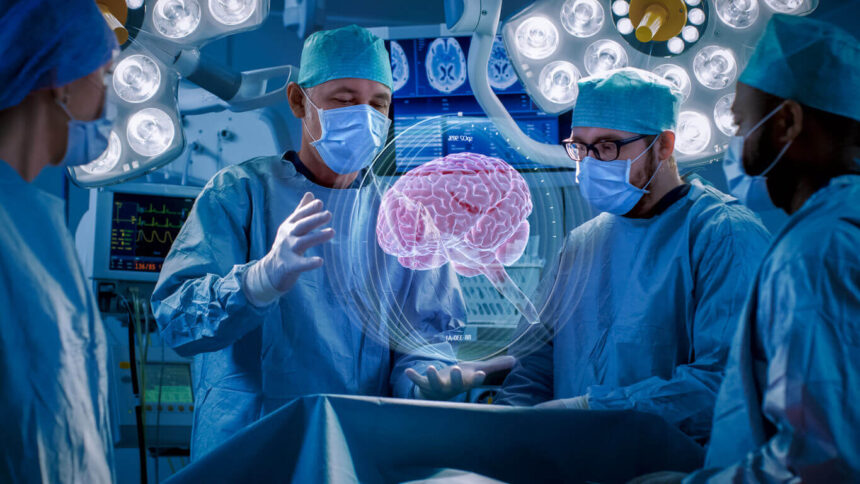Modern neuroscience continues to reshape how surgeons approach complex brain procedures. New research provides deeper insights into brain function, while technological innovations offer unprecedented precision. These developments help brain surgeons perform operations with greater safety and effectiveness. The combination of scientific understanding and advanced tools transforms patient outcomes across the field.
What New Technologies Guide Brain Surgery?
Real-Time Brain Monitoring
Real-time brain monitoring systems allow surgeons to track neural activity during procedures. These devices detect changes in brain function as operations progress, enabling surgeons to adjust their approach immediately when they notice concerning patterns. This technology helps protect key areas that control speech, movement, and memory.
Robotic Surgical Systems
Robotic surgical systems provide enhanced precision for delicate procedures. These machines translate a surgeon’s hand movements into smaller, more controlled motions, eliminating natural hand tremors that could affect accuracy. Surgeons can operate through tiny incisions with tools that move with unprecedented steadiness.
Advanced Navigation Systems
Advanced navigation systems work like GPS for the brain. They create detailed maps that guide surgeons to exact locations within neural tissue. These systems track surgical instruments in real-time as they move through the brain, reducing the risk of damage to healthy tissue around the target area.
How Do Neuroscience Breakthroughs Shape Outcomes?
Research into brain plasticity reveals how neural networks adapt and recover. Scientists now understand that healthy brain regions can sometimes take over functions from damaged areas. This knowledge helps brain surgeons plan procedures that maximize recovery potential. Surgeons can preserve areas that show the greatest capacity for adaptation.
Studies of neural pathways provide detailed maps of brain connectivity. Researchers identify the areas of the nervous system that connect to specific functions. Brain surgeons use this information to predict how removing tissue might affect different abilities. The research helps surgical teams develop strategies that minimize functional loss.
Genetic research reveals how individual differences influence brain structure and recovery. Some patients have genetic variations that influence recovery from surgical procedures. Brain surgeons can now review these factors when planning operations. Personalized approaches based on genetic profiles have been shown to improve outcomes for many patients.
How Does Imaging Improve Surgical Precision?
High-resolution MRI scans provide detailed images of the brain, enabling surgeons to precisely locate and assess the size of tumors or abnormalities before surgery. These images are necessary for planning the safest approach through brain tissue, minimizing risks, and improving outcomes. By providing a clear view of the brain’s structure, these scans enable surgeons to prepare with precision and confidence.
Functional imaging adds another layer of safety by highlighting active brain areas during specific tasks. Patients perform simple activities while the scanner tracks blood flow and neural activity, helping surgeons identify and avoid fundamental regions. This reduces the risk of damaging areas necessary to functions such as speech or movement, thereby preserving the patient’s quality of life.
Consult a Brain Surgeon
Neuroscience advancements continue to improve surgical safety and effectiveness for brain procedures. Early consultation allows medical teams to explore all available treatment options. If you or a loved one needs brain surgery, seek evaluation from an experienced neurosurgical team to discuss how these advances might benefit your specific situation.









